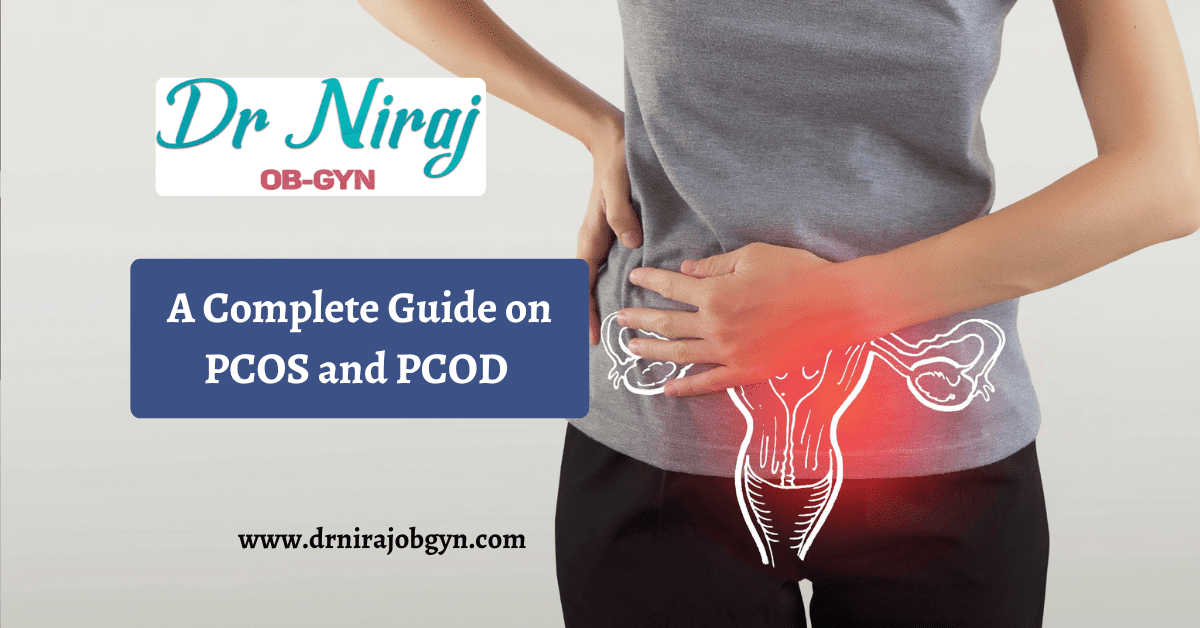
A Complete Guide on PCOS and PCOD – By Datuk Dr. Niraj
PCOS and PCOD: Over 200 million women globally are in their reproductive years. According to the National Institutes of Health (NIH), approximately 1 in 20 of these women are believed to have polycystic ovary syndrome (PCOS). PCOS, also known as polycystic ovarian syndrome, is the prevailing endocrine disorder among women in this age group.
It typically emerges between ages 11 and 25, as per NIH. Symptoms encompass irregular or absent menstrual cycles, excessive body hair, acne, weight gain, and hair thinning on the scalp.
To Know About PCOS and PCOD
What is PCOD?
Polycystic ovary disorder (PCOD) is a medical condition that impacts women’s reproductive health. In PCOD, the ovaries produce excessive amounts of male hormones known as androgens, leading to hormonal imbalances. This imbalance can result in significant issues with menstrual cycles, fertility, hormone regulation, hair growth, and skin health.
Common symptoms include irregular and heavy periods, excessive facial and chest hair growth, acne, infertility caused by lack of ovulation, as well as feelings of depression and anxiety.
What is PCOS?
Polycystic Ovary Syndrome (PCOS) is a hormonal disorder that affects women of childbearing age. The symptoms of PCOS can vary from woman to woman but commonly include irregular periods, excess hair growth, acne, and obesity.
Although there is no cure for PCOS, there are treatments available to help manage its symptoms. If you suspect you have PCOS, it is crucial to consult a doctor for diagnosis and treatment. Diagnosis typically involves a medical examination, a review of medical history, and hormone testing.
It’s important to note that a diagnosis of PCOS is not solely based on symptoms. Understanding the causes of PCOS is also significant. Research indicates that genetic predisposition and environmental factors such as diet or exposure to endocrine-disrupting chemicals during early life or in utero may play a role.
Common Symptoms of PCOD and PCOS
Let’s explore some shared symptoms of PCOS and PCOD:
- Menstrual irregularities are prevalent in PCOD, manifesting as skipped periods, infrequent menstruation, or heavy bleeding.
- Additional common symptoms encompass weight gain, fatigue, mood swings, headaches, acne, and hair thinning.
- Many PCOD cases involve insulin resistance, potentially progressing to diabetes or prediabetes.
- PCOS may induce fertility issues and elevate the likelihood of pregnancy complications.
- In certain instances, PCOS can elevate the risk of polycystic ovarian cancer (POC).
PCOD / PCOS Concerns for the Future
For individuals with PCOD or PCOS, it’s crucial to recognize the potential health issues that may arise later in life. Left untreated, these conditions can contribute to infertility, miscarriages, type 2 diabetes, endometrial cancer, and cardiovascular diseases.
Treatment Options for PCOD
Managing PCOD symptoms involves various approaches, with some treatments proving more effective than others. Depending on individual needs, some women may require hormone-regulating medications, while others may undergo surgery to remove ovarian cysts. It’s essential to consult your doctor to determine the most suitable course of action.
If pregnancy is part of your future plans, discuss with your doctor how any treatment may impact this decision, as pregnancy can exacerbate or revive certain PCOD symptoms.
Here are some key points to consider:
- If you suspect you have PCOD, seek advice from your gynecology doctor as the initial step.
- Treatment options for PCOD vary, and the optimal approach depends on your specific circumstances.
- Common treatments include birth control pills, anti-androgens, insulin sensitizers, and lifestyle modifications.
- Birth control pills aid in hormone regulation and can alleviate symptoms such as acne and excessive hair growth.
- Anti-androgens also regulate hormones and alleviate symptoms.
- Insulin sensitizers enhance insulin utilization in the body, potentially leading to weight loss and symptom reduction.
Meet Dr. Datuk Dr. Niraj, a renowned obstetrician and gynecologist in Malaysia, offering expert care and personalized treatment solutions for women’s health needs. With a focus on compassion and excellence, Dr. Niraj provides comprehensive services to support women throughout every stage of their reproductive journey.

